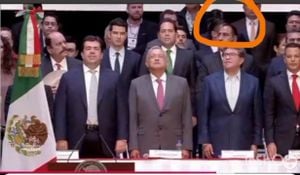Donald Trump made waves this weekend by declaring his intention to "recover" the hefty financial aid provided to Ukraine since the onset of the conflict with Russia, now nearing its fourth year. The situation intensifies as European allies prepare for the third anniversary of the large-scale Russian invasion, which commenced on February 24, 2022. On the day of this anniversary, French President Emmanuel Macron is set to visit Washington, and Spanish Prime Minister Pedro Sanchez will meet with Ukrainian President Volodymyr Zelensky.
At the Conservative Political Action Conference (CPAC), Trump echoed earlier sentiments he had shared with Russian President Vladimir Putin, criticizing Ukrainian authorities and labeling Zelensky as a "dictator." He also made bold claims, stating, "We’re asking for rare earths and oil, anything we can get," underscoring his frustrations with the financial dynamics of support being funneled from the US to Ukraine.
During this turbulent backdrop, the Ukrainian President Volodymyr Zelensky has urged European nations to bolster their efforts to secure peace. Meanwhile, Trump's comments have raised eyebrows, particularly his assertion, "They want to extract $500 billion from us," aimed at exposing what he perceives as Ukraine's substantial financial demands from the US government.
Trump’s position has generated tension within U.S.-Ukraine relations, especially since he has characterized Ukraine's leadership as imploring for aid, implying they lack genuine leverage at the negotiation table. His comments about Zelensky support the Kremlin's narrative, which could complicate the delicate diplomatic relations between the US and Ukraine.
According to sources familiar with the situation, Ukraine is not inclined to enter agreements with the US over mining resources under current circumstances. An anonymous source connected to the Ukrainian side indicated, "The president (Zelensky) is not ready to accept the project in its current form. We’re still trying to make changes constructively." This reflects the negotiations which have turned contentious.
The proposed U.S. resolution at the United Nations has also stirred debate. Secretary of State Marco Rubio has urged member nations to support this new resolution, which surprisingly does not address Ukraine’s territorial integrity but instead emphasizes calling for "a rapid end" to the conflict between Ukraine and Russia. The vagueness of this wording greatly contrasts with previous assertive texts supporting Ukraine, raising flags among diplomats.
The ambassador from Russia, Vassili Nebenzia, shared approving sentiments about the proposed resolution, though he noted its significant omission of the roots of the conflict. This proposal may signal the current US administration's shifting strategy concerning its relationship with both Ukraine and Russia, which could have long-lasting repercussions on the political dynamics of the region.
Meanwhile, Zelensky has acknowledged the United Kingdom for its steadfast support amid the war, showcasing his issues with the perceived wavering U.S. stance. He stated, "We appreciate the fact the UK is committed to maintaining its leadership" concerning Ukraine’s defense.
Trump's declarations and the subsequent international responses raise important questions about the future of United States involvement and assistance to Ukraine. The quid pro quo of political support over military aid conveys dramatic shifts occurring behind closed doors.
While Europe solidifies its call for collective security, the need for coherence and collaboration among allies remains pivotal. Trump’s rhetoric not only complicates these relationships but also highlights the fragile nature of international diplomacy where financial, military, and political support intertwine.
With tensions running high and developing narrative shifts taking precedence, the debate surrounding aid and demands from Ukraine plays out significantly on international stages. Whether Trump's proposed recalibration of financial aid discussions will resonate with voters or generate political fallout moving forward remains to be seen.
This controversial pivot will undoubtedly shape not only the US political future but also the precarious fabric of international relationships, where trust remains as fragile as ever.



